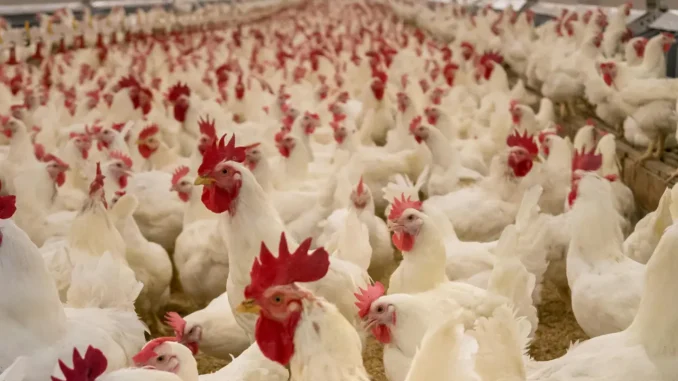
Authorities in the southern Brazilian state of Rio Grande do Sul have begun implementing sanitary barriers in response to a confirmed outbreak of highly pathogenic avian influenza in the municipality of Montenegro, the state government announced Saturday.
The outbreak was confirmed by the Ministry of Agriculture and Livestock on May 16. By the following evening, five of the seven planned containment checkpoints had been established as part of a coordinated effort to limit the spread of the virus.
The state’s containment plan includes 24-hour inspection points aimed at monitoring and disinfecting vehicles transporting live cargo—such as animal feed and milk—across multiple rural properties. Passenger vehicles within a three-kilometer radius of the outbreak site will also be subject to disinfection. Pedestrian traffic, however, is not being targeted in the current operation.
The barriers are being operated in collaboration with the Military Brigade’s Environmental Patrol (Patram) and local municipal authorities. Sanitary control measures are focused on zones within a three- to ten-kilometer radius from the outbreak’s epicenter.
Additionally, officials said approximately 540 rural properties in the surrounding area will be visited for inspection, risk assessment, and public health education related to avian flu prevention and containment.
In a separate statement, Montenegro’s municipal government sought to reassure the public, noting that the risk of human infection from avian influenza remains very low. They added that cases of transmission to humans are rare and typically involve individuals with prolonged, direct contact with infected animals.
“All such individuals are currently under monitoring, and none have shown symptoms of the disease,” the statement said.


